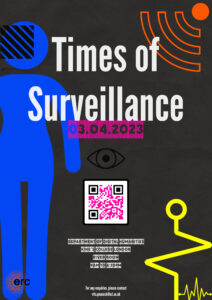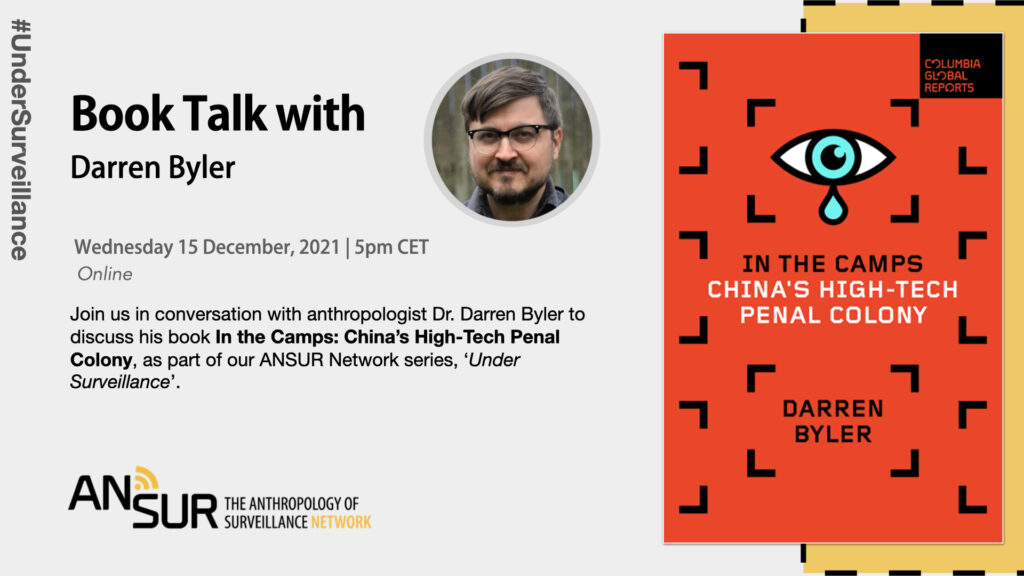Times of Surveillance
Monday 3rd April 2023,
River Room, King’s College London

9:00 – Registration and Coffee
9:30 – Welcome and Introduction: Vita Peacock
9:45 – Keynote Lecture: Sun-ha Hong
10:30 Times of (health)care
10:30 – Meyer and Albrechtslund, Timely Responses: Using Surveillance Technologies to Support Dementia Care
10:50 – Claire Dungey, Surveillance in the family: monitoring, care and temporality in Germany
11:10 – Liam Simmonds, Generating Self-Knowledge for Health/Pleasure Outcomes in Recreational Drug Consumption Practices through Digital, Social, and Ethical Surveillance
11:30 – Discussion (Discussant and Chair: Kenni Bruun)
12:10 Real-time Monitoring
12:10 – Alice Riddell, Citizen app: The digitization of crime and the temporality of personalised security
12:30 – Andreas Stoiber, At the intersection of scientific knowledge and humanitarian action: Space-Eye and the temporalities of satellite surveillance/sousveillance
12:50 – Karolina Kupinska, Temporal Control as a Result of “Small Act” Surveillance During COVID-19 Pandemic in Xiamen, P.R.C.
13:10 – Discussion (Discussant and Chair: Claire Dungey)
14:30 Time is money
14:30 – Martin Webb, Putting the selfie to work: Image making and work/time discipline in the margins of the Indian state
14:50 – Martina Eberle, “Your voice counts” – Managing response to resistance through surveillance regimes: digital people analytics platforms as instruments of governance in corporate environments
15:10 – Lake Polan, Sin, Intimacy, and Disavowal in the Internet’s Business Model
15:30 – Discussion (Discussant and Chair: Matan Shapiro)
16:00 Policing (and) the Future
16:00 – Sophia Goodfriend, The Banality of Surveillance: On Maintaining Israel’s Surveillance State in the Occupied Palestinian Territories
16:20 – Carolina Sanchez Boe, Temporal Experiences of Digital Detention and Extractions of Time for Profit. Electronic Monitoring of Asylum Seekers in the USA.
16:40 – Becky Kazansky, Resisting the violent temporalities of preemptive surveillance: strategies and their tensions
17:00 Discussion (Discussant and Chair: Vita Peacock)
17:30 – 18:30 Concluding Discussion (chair: Vita Peacock, discussant: Sun-ha Hong)

